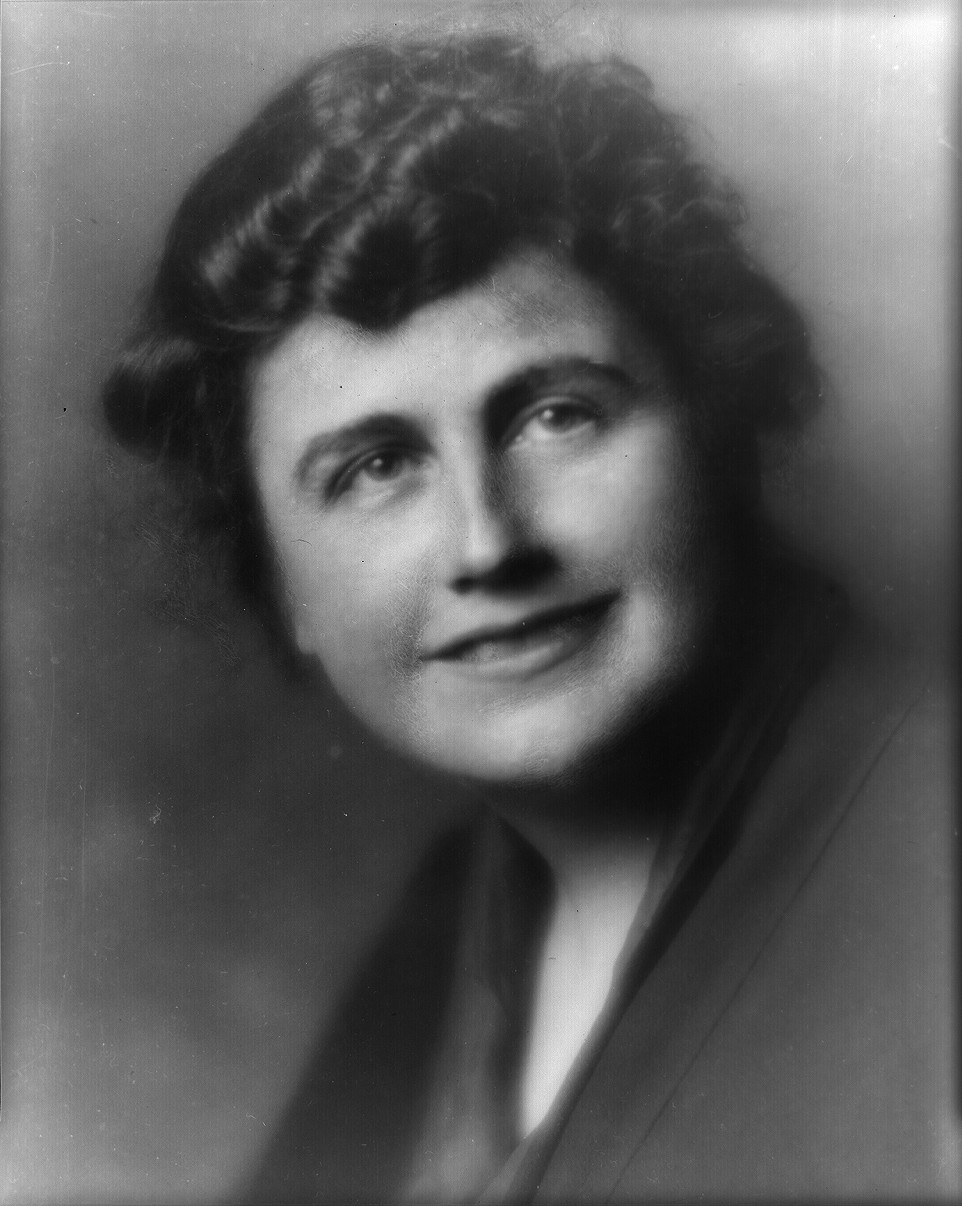After the death of Ellen Wilson, Wilson was struck with grief for his wife meanwhile faced with the oncoming pressures of war. A few months later, Wilson was remarried to the beautiful Edith Bolling Galt.
Edith was an interesting woman, a direct descendant of Pocahontas and leading a controversial legacy, Edith reshaped the role of the First Lady forever. As soon as Edith became First Lady Wilson granted her an unprecedented amount of power. Wilson allowed Edith to accompany him while he read highly classified documents and she also often sat in on discussions with his advisors. Not only that, but Edith often criticized political figures and foreign representatives. Edith held so much power within the White House she would often deny Wilson’s advisors audience with him if she deemed him too busy. The First Lady volunteered for the Red Cross at the beginning of World War I and even had sheep grazing on the lawn of the White House sending money made off the wool towards war efforts.
Surprisingly, Mrs. Wilson was not a supporter of the woman’s suffrage movement. Edith changed the role of the First Lady in the White House forever, surely she would have supported the rights of women. Apparently, Edith referred to them as “those devils in the workhouse”. Later on, Woodrow Wilson favored women’s suffrage, though not from the influence of Edith.
By the end of the war, President Wilson’s health was suffering. By the end of his Nationwide Tour Wilson was physically exhausted. When he returned home to the White House Wilson suffered a stroke. Immediately Edith took action. She refused to allow Wilson to resign. With Wilson’s illness, Edith practically took control of the presidency. It was she who individual cabinet members spoke to. It was she who reviewed documents and the many decisions that needed to be made.
Edith Wilson lived a long life, dying in 1961. Her entire life, Edith dismissed any claims that she assumed the full power of the presidency. Her entire life, she was dedicated to Woodrow Wilson and protecting as well as enhancing his legacy.
CITE:
https://www.biography.com/news/edith-wilson-first-president-biography-facts
https://www.britannica.com/biography/Edith-Wilson


Claire, I found it extremely interesting and had no idea that she ended up taking over Wilson's role as president for the last few years of Wilson's presidency. She also apparently did not support the women's suffrage movement, and she goes directly against any female progressive agenda by having this stance. In many ways, Edith Wilson is the anti-Eleanor Roosevelt. Roosevelt was a significant advocate in civil rights and racial equality in the US. She also had no issues going directly against her husband, disputing some of his opinions publicly. Roosevelt helped write the Universal Declaration of Human Rights for the UN and was a UN delegate for ten years.
ReplyDeleteSource:
https://www.biography.com/people/eleanor-roosevelt-9463366
This was a very cool post, because it was interesting to see how she altered the role of the first lady. Before her, likely the first lady was unheard of, especially in politics. But in the present, the first lady has arguably as much national presence as the president! I also read that Edith was aware of wartime codes as she would be present in meetings with the president which I thought was interesting.
ReplyDeleteThis post is very interesting, as much of the work of first ladies often does not get very much attention. It is so cool to look at how Edith Wilson really took on a significant role as first lady, showing how she truly understood what was going on in the White House and in the world at this time. I found it surprising that she did not support the women's suffrage movement. Considering everything she was doing in the White House, I would think she would have been seeing firsthand how much she was able to accomplish, since she was in a position where she could share her voice, and find it more important that other women have a say as well. In an article I found (http://www.history.com/topics/first-ladies/edith-wilson), I also read about how quick Woodrow Wilson was to discuss major political matters with Edith, which was really interesting to me. This was an extremely complex and tense time for the country and the whole world, so the fact that he was willing to trust Edith and her opinion about such a crucial topic so soon after meeting her seemed unusual to me. However, she clearly did not do anything that caused harm, and she really helped Woodrow Wilson during this time.
ReplyDeleteClaire, this was a very interesting post! I've found a couple of sources online talking about how Edith "secretly ran the government" for Wilson, which I think was important at this time, considering that women didn't have many equal rights as men. I think that helping Wilson while he was fighting (along with the responsibility as the First Lady) his sickness was a very loving thing to do, and obviously, most definitely, it would've sparked a change on how people would see the role of women at this time. Furthermore (as said in the documentary we watched), she strongly supported the war effort, and raised sheep to support the wool industry. I was also surprised that she didn't support the suffrage movement, and in this source I found (http://www.firstladies.org/exhibit-progressive-age.aspx), Edith insisted that the protesters should stay in jail unless they "promised not to protest again", which I thought was quite interesting.
ReplyDeleteSources:
https://www.historyandheadlines.com/first-lady-secretly-ran-u-s-government/
http://www.firstladies.org/exhibit-progressive-age.aspx